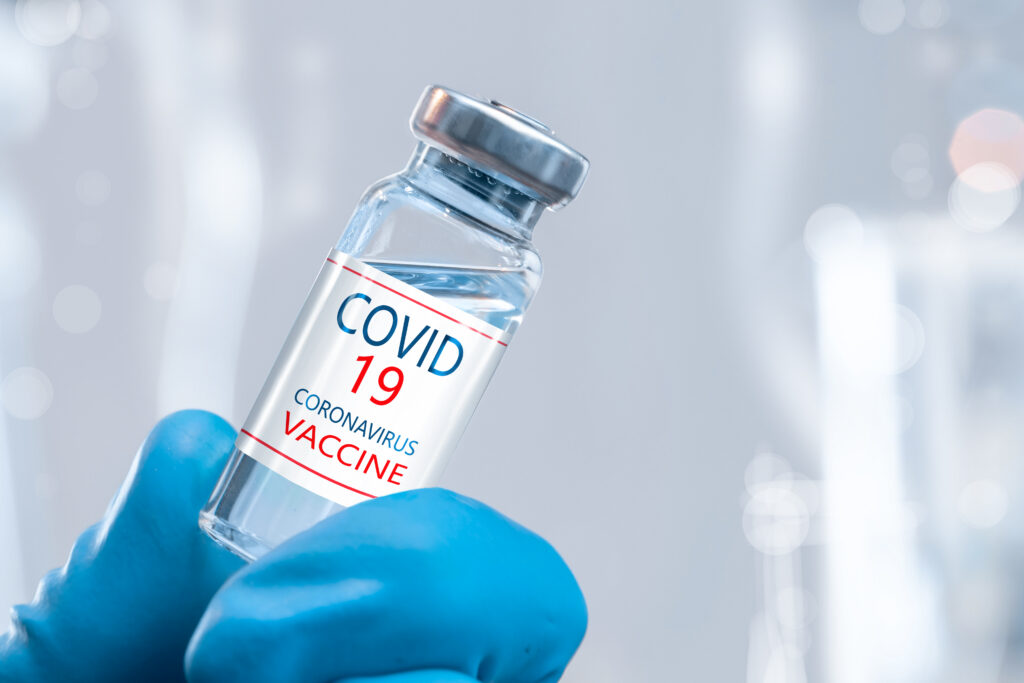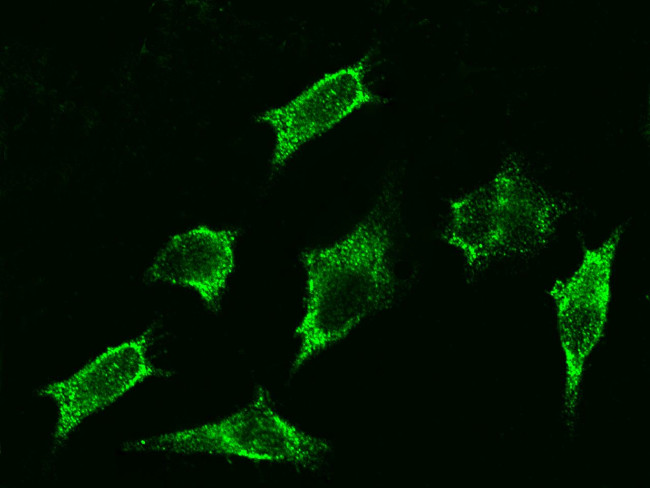Now live! RTHM Direct – simplified medication access for Long COVID, ME/CFS and related conditions. Check it out
Angiotensin-II-receptor 1 (AT1R) mediates most of the known actions of angiotensin II, including vasoconstriction, aldosterone synthesis, and renal sodium retention, playing a central role in blood pressure regulation and electrolyte balance.
Functions of the Angiotensin-II-receptor 1 (AT1R)
Angiotensin II Type 1 Receptor is one of the main receptors through which the peptide hormone angiotensin II exerts its effects. The activation of AT1R by angiotensin II plays a crucial role in the renin-angiotensin-aldosterone system (RAAS), which regulates blood pressure, fluid balance, and electrolyte homeostasis. Here’s a summary of its main functions:
- Vasoconstriction: The binding of angiotensin II to AT1R results in the constriction of blood vessels, leading to an increase in blood pressure.
- Aldosterone Secretion: Angiotensin II stimulates the adrenal cortex to release aldosterone, a hormone that promotes sodium and water retention by the kidneys, which can elevate blood pressure.
- Cardiac and Vascular Remodeling: Chronic activation of AT1R can promote structural changes in the heart and blood vessels, contributing to conditions like heart failure and atherosclerosis.
- Increased Sympathetic Nervous Activity: Angiotensin II can enhance the release and action of noradrenaline, further promoting vasoconstriction.
- Promotion of Antidiuretic Hormone (ADH) Release: This leads to water retention in the kidneys.
- Stimulation of Thirst: Activation of AT1R in the brain can promote thirst, leading to increased water intake.
- Kidney Function: It can modulate renal tubular sodium reabsorption, contributing to fluid balance and blood pressure regulation.
Given these functions, drugs that block AT1R, known as angiotensin II receptor blockers (ARBs), are commonly prescribed to treat hypertension, heart failure, and kidney diseases. Examples of ARBs include losartan, valsartan, and telmisartan. They work by antagonizing the effects of angiotensin II, leading to vasodilation, reduced aldosterone release, and other beneficial effects in cardiovascular and renal systems.
Autoantibodies to Angiotensin-II-receptor 1 (AT1R)
Autoantibodies against the angiotensin II type 1 receptor (AT1R), a G protein-coupled receptor (GPCR), have been implicated in various diseases. These autoantibodies can activate AT1R and contribute to the pathogenesis of conditions such as systemic sclerosis, scleroderma renal crisis, and cardiovascular diseases. They can stimulate vasoconstriction, secretion of proinflammatory cytokines, collagen production, and release of reactive oxygen species. The presence of AT1R autoantibodies has been associated with disease severity, organ dysfunction, and poor outcomes in certain patient populations undergoing kidney transplants. (Akbarzadeh et al. 2023) (Hegner et al. 2023) (Dragun et al. 2009) (Philogene et al. 2020) (Min et al. 2018) (Wiwattanathum et al. 2018) (Abuzeineh et al. 2020)
COVID-19 and Long COVID
Angiotensin II receptor (AT1R) plays a significant role in the renin-angiotensin system (RAAS) and has been implicated in COVID-19. The binding of the SARS-CoV-2 virus to ACE2 leads to dysregulation of the RAAS, favoring the ACE-Ang II-AT1R axis. Activation of AT1R can result in vasoconstriction, inflammation, fibrosis, oxidative stress, and other detrimental effects. This activation is associated with hyperinflammation, acute respiratory distress syndrome (ARDS), and various extrapulmonary complications seen in COVID-19. The presence of AT1R autoantibodies has been associated with disease severity. Targeting AT1R with drugs like angiotensin II receptor blockers (ARBs) may hold promise for the treatment of COVID-19. (El-Arif et al. 2022) (Aksoy et al. 2021) (Miedema et al. 2021) (Jiang et al. 2021) (Miedema et al 2023) (Xavier et al 2021) (Janc et al. 2023) (Izmailova et al 2022) (Cabral-Marques et al. 2021)
Dysautonomia and POTS
There is evidence suggesting a potential role of angiotensin II receptor (AT1R) in dysautonomia, specifically in postural orthostatic tachycardia syndrome (POTS). POTS is a condition characterized by symptoms such as increased heart rate, dizziness, and fatigue upon standing.
One study found that patients with POTS had activating autoantibodies to the AT1R, which could impact cardiovascular pathophysiology in POTS. Another study demonstrated defects in cutaneous ACE2 (an enzyme involved in the regulation of angiotensin II) and angiotensin-(1-7) production in POTS, suggesting an imbalance in the renin-angiotensin (RAAS). Additionally, angiotensin II type 1 receptor blockade with losartan has been shown to correct cutaneous nitric oxide deficit in POTS. (Yu et al. 2019) (Stewart et al. 2008)
However, it is important to note that the exact mechanisms linking AT1R and dysautonomia in POTS are not fully understood, and more research is needed to establish a definitive connection.
Post-Acute COVID-19 Vaccination Syndrome (PACVS)
Chronic fatigue and dysautonomia are often seen with post-acute COVID-19 vaccination syndrome. New research shows blood marker changes in those post-vaccine, including increased angiotensin II type 1 receptor antibodies and decreased alpha-2B adrenergic receptor antibodies. (Semmler et al. 2023)

Hypertension and Cardiovascular Conditions
In primary aldosteronism, which is a common form of endocrine hypertension, agonistic autoantibodies against AT1R have been described. These autoantibodies have also been noted in transplantation medicine and women with pre-eclampsia. (Meyer et al. 2020)
Women with preeclampsia have elevated concentrations of agonistic autoantibodies against AT1R. These autoantibodies have been shown to play a significant role in the pathology and possible genesis of preeclampsia. (Campbell et al. 2018)
Diabetes Mellitus
Autoantibodies against AT1R have been found in the serum of patients with diabetes mellitus. It remains unclear whether these autoantibodies induce pancreatic beta cell apoptosis and participate in the development of diabetes mellitus. (Wang et al. 2021)
These autoantibodies appear to have diverse effects across a range of clinical conditions, emphasizing their potential significance in human health and disease.
Systemic Sclerosis (SSc)
Autoantibodies against angiotensin II type 1 receptor (AT1R) have been found in patients with systemic sclerosis (SSc), a connective tissue disorder characterized by autoimmunity, vasculopathy, and tissue fibrosis. These autoantibodies play a role in the pathogenesis of SSc by regulating physiological processes such as collagen production and angiogenesis modulation. They have been associated with vascular abnormalities and progressive organ damage seen in SSc patients. Understanding the mechanisms behind these autoantibodies could provide insights for future therapies for SSc patients. (Cabral-Marques and Riemekasten 2017) (Kill et al. 2015) (Gunther et al. 2015) (Riemekasten et al. 2011)
Learn more about autoantibody testing at “RTHM Lab Now Offering GPCR+ Autoantibody Panel” and visit our Lab Page to order your GPCR+ Antibody Panel today.
Featured image courtesy of RCSB Protein Data Bank

Get updates
Join our mailing list



